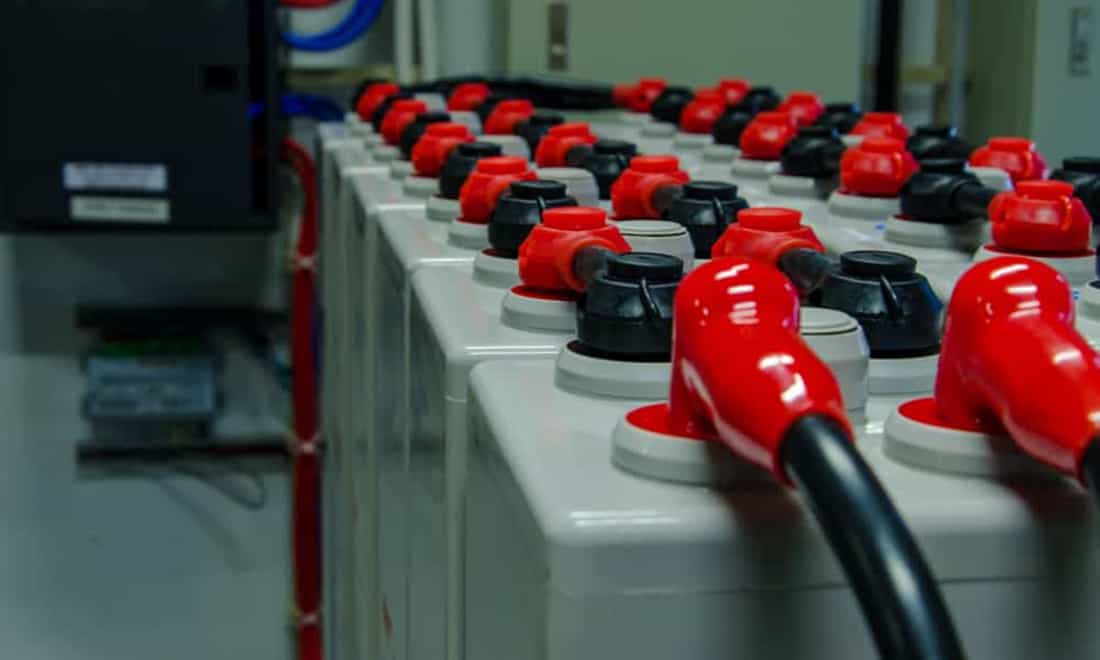As the world shifts to rely more on renewable energy sources like solar and wind, the need for reliable energy storage has become more important than ever.
Energy storage systems allow us to store the energy produced during times of high supply and use it during periods of high demand or when renewable sources are not available.
One of the most important components of these systems is the batteries that store the energy.
In this article, we'll look at the best batteries for energy storage and explore some of the factors that should be considered when choosing a battery.
Types Of Batteries That Store Energy The Best

There are many countless types of batteries that can be used for energy storage, each with its own advantages and disadvantages. Some of the most commonly used batteries include:
- Lead-acid batteries
- Lithium-ion batteries
- Flow batteries
- Sodium-based batteries
Lead-Acid Batteries
Lead-acid batteries are one of the oldest and most established types of batteries, and they have been used for energy storage for decades.
They are reliable and relatively inexpensive, which makes them a popular choice for small-scale energy storage systems.
However, lead-acid batteries are heavy, have a relatively short lifespan, and can be environmentally harmful due to the use of lead.
Lithium-Ion Batteries
Lithium-ion batteries are the most commonly used battery technology in the world today, and they are increasingly being used for energy storage as well.
They are lightweight, have a long lifespan, and can be recharged quickly. However, they are more costly than lead-acid batteries and can be more difficult to recycle.
BLUETTI solar generators use a type of lithium-ion battery technology known as lithium iron phosphate or LiFePO4. This technology is more advanced than most other forms of lithium-ion.
If you'd like to learn more about LiFePO4 batteries, we recommend reading this article.
Flow Batteries
Flow batteries are a relatively new type of battery technology that is gaining popularity for large-scale energy storage applications.
They use a liquid electrolyte that is pumped through a cell stack to store and release energy. Flow batteries are highly efficient, have a long lifespan, and can be easily scaled up or down to meet the needs of different energy storage systems.
However, they are still relatively expensive and require careful management to prevent leaks.
Sodium-Based Batteries
Sodium-based batteries are a new and promising technology that is currently being developed for energy storage applications.
These batteries use sodium as the electrolyte, which is more abundant and less expensive than the materials used in lithium-ion batteries.
Sodium-based batteries are also highly efficient and have a long lifespan. However, they're still in the early stages of development and are not yet widely commercially available.
How To Choose A Battery For Energy Storage

When choosing a battery for energy storage, there are several factors that should be considered. One of the most important factors of a battery is its energy density. This refers to the total amount of energy capable of being stored in a particular given volume or weight of the battery.
Batteries with higher energy densities are more efficient and can store more energy in a smaller space, which is important for many energy storage applications.
Another key factor to consider is the battery's lifespan. Batteries with longer lifespans are more cost-effective in the long run, as they will need to be replaced less frequently.
Lithium-ion batteries are generally considered to have the longest lifespan of all the battery technologies currently available, although this can vary depending on factors like temperature and usage patterns.
The cost of the battery is also an important consideration. While lithium-ion batteries are generally more expensive than lead-acid batteries, their longer lifespan and higher efficiency can make them more cost-effective over time.
Additionally, the cost of batteries is expected to continue to decrease as the technology improves and production scales up.
The safety of the battery is another important consideration, especially for large-scale energy storage systems.
Batteries that are prone to overheating or explosions can pose a significant safety risk, so it's important to choose a battery that has been tested and proven to be safe.
Finally, the scalability of the battery is an important consideration for large-scale energy storage systems.
Batteries that can be easily scaled up or down to meet the needs of different systems are more workable and can be used in a wider range of applications.
Final Thoughts
There are several different types of batteries that can be used for energy storage, each with its own advantages and disadvantages.
Lead-acid batteries are reliable and inexpensive, but they are heavy and have a relatively short lifespan. Lithium-ion batteries are lightweight and have a long lifespan, but they can be more expensive.
Flow batteries are highly efficient and can be easily scaled up or down, but they are still relatively expensive and require careful management.
Sodium-based batteries are a promising new technology, but they're still in the earlier stages of development.
When choosing a battery for energy storage, it's important to consider factors like energy density, lifespan, cost, safety, and scalability.
As renewable energy sources continue to become more important, energy storage systems will play an increasingly important role in ensuring a reliable and sustainable energy supply, and choosing the right battery technology will be a crucial part of that equation.







































































